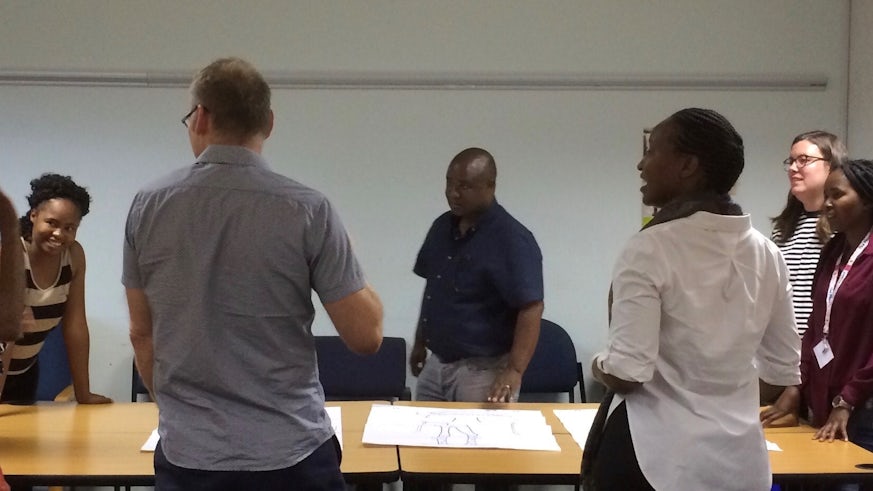Changing the face of Namibian heritage
18 February 2020

Phoenix Heritage project to help create sustainable heritage for country rich in cultural and natural resources
An international project is utilising expertise from Wales to support a sustainable heritage in Namibia, funded by the Global Challenges Research Fund.
The Phoenix Heritage project aims to research heritage in the southwestern African country to create a sustainable Historic Environment Record as a tool to provide opportunities for future research priorities, management priorities, training and public engagement.
It has been inspired by the ongoing work of the Phoenix Project between Namibia and Cardiff University, under the direction of Professor Judith Hall.
The innovative project will co-develop and co-refine existing UK best practice in heritage research and management for use within Namibia.
Inspired by the established partnerships between the University of Namibia and the Phoenix Project, a team of UK and Namibian heritage academics, professionals, stakeholders and students will work together to enhance understanding of the existing archaeological resource, co-create a sustainable asset management system to host Heritage Asset information and develop new strategies and skills for heritage recording and access.
Heritage has the potential to contribute to social, political, economic and ecological change. Within developing countries, such as Namibia, the challenges of identifying, managing, protecting and sustaining Heritage Assets are substantial, but need good baseline data to realise their full potential.
Forty times the geographic size of Wales, Namibia has a relatively small but diverse population of 2.3 million people, contrasting to 3.1 million in the principality. But across the country Namibia’s natural and cultural heritage needs to be safeguarded and celebrated, and this project aims to capture and share the value of these assets internationally.
Heritage management in the country has changed considerably in the last two decades: created in 2003, the National Heritage Centre has already established a national framework for sharing and celebrating cultural heritage.
However while its Sustainable Development plan includes goals to preserve ‘heritage and history, protect [our] traditional knowledge, and develop [our] language, creative and cultural endeavours as well as a series of aspirations to develop sustainable tourism’, less than 200 assets – be they sites or objects – are held in the National Inventory. In sharp contrast, Glamorgan and Gwent alone hold 25,000 records.
The Phoenix Heritage project will establish an open-source online heritage data management system, developed in Wales, which enables recording and analysis of traditional data alongside digital mapping, images and documents, available in a useful variety of formats at minimal cost and free to students.
Collaborating in Wales are Professor Jacqui Mulville (archaeologist with heritage management experience) and Dr Steve Mills (Computing, GIS and survey) plus a Research Associate at Cardiff University’s School of History, Archaeology and Religion and Dr Ffion Reynolds of Cadw the historic environment service for the Welsh Government and in Namibia, Dr Goodman Gwasira, University of Namibia (heritage management, survey and rock art), Drs Andreas Amukwaya and Kauna Mufeti (Computing and GIS) of the University of Namibia and Dr Agnes Shiningayamwe of the National Heritage Centre.
This Phoenix Heritage project runs over six months until June 2020, with plans to develop further initiatives through the decade.


